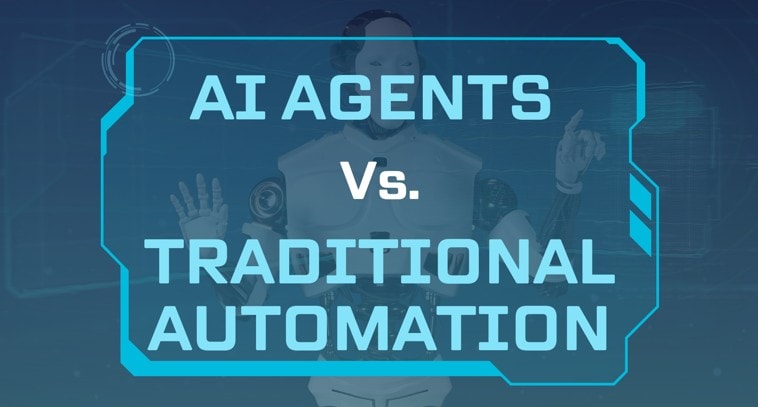You might be familiar with the importance of SEO in driving traffic to your website. However, when your goal is to increase the number of customers who come to your physical store, call your business, and order online, you need to be visible in Google Search.
By optimizing your webpages for better rankings, you’re able to convert searchers into customers.
But how does SEO work, precisely? In this article, we will look at how marketers use strategies to optimize your website to rank in search engines like Google, Bing, Yahoo, and several others.
Let’s start with the basics of SEO.

What Is SEO
SEO is the process of optimizing your website to rank high in Google’s search results for users searching a specific keyword about your business, product, or topic of interest, like “burrito blanket,” if that’s what you sell or promote.
In a general view, ranking your website in search pages leads to more visibility, boosting the traffic and, in the process, probable sales of your business. If you’re totally new to SEO, well, you must be very bewildered by now. Sometimes you are unable to find unique guidelines due to their vastness, making them pretty confusing.
Sometimes you are unable to find unique SEO guidelines due to their vastness, making them pretty confusing but you will find several guides to get you started with it at CamRojud Blog.
One reason SEO is often frustrating is that it’s always in flux. Marketers jump onto something and then start battering it to death, making it less effective. To an extent, we have ourselves to blame for our inability to have nice things in the SEO world.
Moreover, Google continuously upgrades the search algorithm to date, making it a task of monthly challenges to entice more visitors to your website and to convince Google that your site is valuable and deserves a higher ranking. SEO is an ongoing battle to gain more visibility and persuade search engines to direct searchers to your site.
How Does SEO Work?
SEO is in a constant state of evolution. Strategies that used to be popular and effectively used eventually made way for newer, more effective methodologies. SEO best practices are thus subject to a life cycle of death and reincarnation.
While SEO itself is not dead, it continually evolves day in and day out. One needs to be practical and resilient in the game of SEO to adjust to all these changes and move along with them. The ability to adapt to changing dynamics alone guarantees success in SEO.
You may also like: An Overview of the Evolution of Search Engine Optimization
SEO works by optimizing different aspects of your website and online presence to increase visibility and rankings in search engines.
The key elements that comprise how SEO works are highlighted and broken down as follows:
- Keyword Research: SEO begins by determining the different terms and phrases your target audience would more likely use to look up information, products, or services related to your business. Keyword research helps you know the terms to target in optimization efforts.
- On-Page Optimization: This includes webpage content and optimization of the HTML source code. It comprises carrying relevant keywords in page titles and headings, meta descriptions, and throughout the content. Some on-page optimizations include improvements in the structure of the website, the structure of URLs, and internal linking for a better user and search engine crawl experience.
- Technical SEO: The core of technical SEO is to make the on-site elements of a website perfect for search engines to crawl and index the web pages easily. This would cover website speed, mobile-friendliness, URL structure, XML sitemaps, robots.txt file, crawl errors, and broken links.
- Content Creation: High-quality, informative, and engaging content is an essential element of SEO. You should create content that satisfies the needs and interests of your target audience to attract more organic traffic and get backlinks from other reputable websites. The creation of content can be anything from blog posts and articles to videos and infographics.
- Off-Page Optimization: It involves the building of your website’s authority and credibility through external factors. This includes acquiring backlinks from other authoritative websites, promotion on social media, influencer marketing, and online reputation management. Off-page optimization will help the search engines determine the relevance and trustworthiness of your website.
- User Experience: This in return makes the user’s on-page experience very important when performing an SEO. Factors such as speed, responsiveness, good intuition in a website, and aesthetics improve user experience. Searches respond more positively to websites based on such preferences, ranking them in a better position.
- Monitoring and Analysis: SEO is an ongoing process, and it’s essential to monitor your website’s performance and make data-driven optimizations. Analyzing key metrics like organic traffic, rankings, bounce rate, and conversions can provide insights into the effectiveness of your SEO efforts. This data helps identify areas for improvement and guide future optimization strategies.
This means that SEO is a long-term game, and you may need to be a little patient for the results. This continuously involves monitoring, adapting to updates, and learning industry best practices in order to maintain and improve the visibility of your website in search results.
What Is The Most Important SEO Factor?
There is no single overriding SEO factor that is more important than all the others. The standard answer to any SEO question is often, “Well, it depends.” Which is frustrating, but true nonetheless.
- Are backlinks important? Yes, but they have to make sense and be relevant.
- Are backlinks required to rank? Probably, but not necessarily.
- Does the length of content matter? Yes, but a long, lousy post will not outperform a short, great post.
I could go on and on with more examples, but I think you get the idea.
How Long Does Take for SEO to Work?
The inner workings of Google’s algorithm are known only to Google itself. They periodically roll out updates, and while there are some notable lists of essential ranking factors, the precise intricacies remain undisclosed.
You may also like: Best Link Building Strategies for Local SEO
The reality is that SEO requires the necessary time to yield results, which can vary from weeks to months, depending on your specific strategy. If someone else implements even a slight improvement in their approach, it could potentially displace your website from the top positions in search engine results pages (SERPs).
On-Page SEO vs. Off-Page SEO
On-page SEO refers to changes made directly on your website that influence SEO.
For example, this would include tasks such as adding an XML sitemap to help improve your SEO.
Off-page SEO, on the other hand, refers to SEO techniques that happen outside of your website, like the process of building links to your cornerstone content.
Link Building
Well, yes, technically you are free to do that sort of thing, such as stick your hand in a blender. It is not a suggested and good SEO strategy.
Instead of buying links, read through our guide to link building for some more information on the best ways to build good and organic links.
Trending SEO Factors
Now that we have made the ground, it is time to dive in and get involved with it. Therefore, below we will go through some of the important SEO factors.
The first thing to note is that nothing in SEO is permanent since SEO trends keep on changing; what works today might morph or degrade in time.
Focus on Relevant and High-Quality Content
From this, it can be mentioned that technical SEO includes site structures, anchor text, and how the URLs are structured.
Yes, those details matter, but the core behind SEO is content creation. Once you get that formula down of producing quality content worthy of reads, then other ways in which you will apply SEO to become far more tolerable.
A strong rank on the first page in Google requires a proper match in the content and optimization, meeting both the target audience’s expectations and the need to gain authoritative links from other sites.
You may also like: 5 Lead Generation Strategies That Are Hot
When it comes to content creation, some critical things to be kept in mind are:
- Keywords have lesser significance, but context carries weight. Google spiders scan the web for contextual meaning of the contents while chasing associated secondary keywords matching searcher intent.
- Include a clear and keyword-rich title, meta description, alt text, H1, and URL. These attributes tell Google what your website is about, and contribute to its ranking.
- While the length of the content is important, relevance is more important than the length. As Google says, the amount of content necessary for a satisfying user experience will vary based on the topic and purpose of the page.
First, prioritize creating content that resonates with human readers, which afterward needed to be optimized for Google. Truly valuable, truly informative, and seriously engaging content that meets the needs of your audience should be published, but keeping in consideration the keywords and optimization techniques proper in mind.
Metadata in SEO
Metadata is information or quick data that describes data that gives more context and details for a piece of information. In most cases, metadata is used to describe websites and digital content of web pages, documents, images, videos, and kinds of media.
In common practice, metadata may consist of an element that helps the search engines or systems guess upon what has been written.
Metadata commonly used in web pages includes but is not limited to:
- Title Tag: It is the title of your webpage that shows in Search Engine Results and Browser Tabs; quintessential for SEO purposes.
- Meta Description: A short description or summary of the content of a webpage. This appears under the title tag in search results and is meant to encourage users to click on the webpage.
- Meta Keywords: Keywords or phrases relevant to the web page content. The relevance of meta keywords has decreased nowadays, though a long time ago, these used to be a goldmine in the ranking of any search engine.
- Meta Robots: This is metadata that tells the search engine spider how to index and crawl your web page. It can include directives like “index” (allow indexing), “noindex” (do not index), “follow” (follow links on the page), or “nofollow” (do not follow links).
- Open Graph Tags: Metadata that social media use to determine how the content of a web page is displayed when you share on social media. Examples of Open Graph tags include title, description, and image information.
- Canonical Tag: A tag that tells search engines which version of a webpage is the preferred one when there are several versions of a page with similar content. It helps avoid duplicate content issues and consolidates the ranking signals for the preferred page.
Metadata is very important for providing information to search engines, social media, and other systems about web pages. By properly optimizing and using relevant metadata, you can significantly improve the visibility, click-through rates, and user experience of your website.
Links in SEO
Since Google’s beginning, links have been a very significant part of search engine optimization. Links act like “votes,” telling Google that your content is of value and relevant since other websites are linking to you. Having more high-quality, relevant links will better the chances that your website will rank for the keywords targeted.
You may also like: On-Page SEO Tips for Small and Medium Businesses
In essence, links remain a fundamental aspect of SEO. However, it’s important to note that quality holds more significance than quantity. When investing in link building as part of your SEO strategy, prioritize obtaining links from reputable websites in your niche that are topically relevant and well-regarded.
User Experience (UX) in SEO
The user experience (UX) of your website significantly impacts its ranking on Google. However, assessing user experience involves multiple factors such as site structure, layout, content quality, and more, making it a complex metric to measure.
To enhance your website’s performance, consider implementing the following best practices:
- Monitor Internal Metrics: Keep tabs on the internal metrics like time on page, CTR, and bounce rate. Again, they are not direct ranking factors; however, by optimizing the website for a high degree of user engagement, one directly contributes to the benefit of search engine optimization. Such stats provide an analysis of how your content performs and how users appreciate it. These help positively to build a picture of the website in Google’s system.
- Make Site Navigation Easier: The navigation of your website should let users quickly find the pages they are looking for. Sometimes less is more, so simplify your navigation bars, add drop-down menus, use internal links, and provide site search. An easy-to-navigate website structure will contribute to a better user experience and make users want to browse your site some more.
- Prioritize Site Speed: Make sure your website loads fast. It should load in less than two seconds, to be precise. Enhance the performance of your site by applying different strategies like image compression, code and structure optimizations, and going for faster servers. You can use Google’s PageSpeed Insights to analyze your site’s speed.
- Predict UX Emphasis in the future: User experience will be a more significant factor in the future of SEO as Google algorithms continue to evolve and improve. So, staying one step ahead of learning about the basics of UX and implementing best practices to your website is very important.
By integrating these recommendations, you can enhance the user experience of your site, while it will also match evolving SEO standards.
Mobile Friendly
In 2018, Google moved to mobile-first indexing, which means the search engine uses the mobile version of websites as the primary method of determining rank and position in search results. Given that more than 50% of global web traffic originates from mobile devices, this makes complete sense.
What does this mean for SEO?
In the first place, Google recommends giving prominence to responsive design. It’s important that your content is identical on desktop and mobile, and loads quickly on both desktop and mobile.
Neglecting your mobile presence will negatively affect the whole website, relegating it to the Google cellar. It is very important that you work toward making your website friendly for mobile phones to maintain a strong presence.
Importance of Voice Search
The topic of voice search often presents conflicting information and viewpoints. Back in 2016, Google showed that about 20% of searches performed in the Google app were voice searches.
Fast forward to today when more than a quarter of all Americans own a smart speaker. And despite this growth, an astonishing 72% of marketers have no intentions to optimize for voice search. So, does voice search really matter? Yes, it does.
You may also like: On-Page and Off-Page SEO Techniques You should do
Voice search has seen a trend of growth and is most likely to go upwards further. While it is not exactly the highest priority of an SEO strategy, it already makes sense to start considering and optimizing for voice search to be ahead of your game. Most of the voice search optimization strategies also make sense for semantic search.
The following are some of the steps that can help optimize your website for voice search:
- Use Natural Language and Answer Questions: Compose content in such a way that it should be natural to the tone of conversations and answer a specific question a user could ask. It will bring your content closer to queries made during voice searches.
- Featured Snippet Optimization: The featured snippet is a small, informative piece of content that appears at the top of search results. When creating your content, remember to optimize for featured snippet appearance since these are highly likely to be read loud in voice search results.
- Create an FAQ page with Markup: Make sure your website has a full, separate Frequently Asked Questions page and use structured data markup-like Question and Answer schema-to give the search engines context and display your information as the correct answer to voice questions.
While optimizing for voice search isn’t an immediate necessity, the move is very strategic to stay ahead in the future and meet Google’s direction. With voice search optimization techniques, you put your website out there to have a strategic advantage as it develops.
How to Succeed In SEO
There are two categories when it comes to SEO advice: the technical ones discussed earlier and the core principles. The former may change in years to come, but the following are some timeless and priceless tips on SEO.
Dont Get Burn
You must have come across terms like black hat, white hat, and gray hat SEO.
Black Hat SEO: Practices that grossly violate Google’s terms of service. These can include devious tactics like having several interconnected websites to manipulate the search rankings, especially for low-quality Bitcoin sites. For this, people often use terms like PBN (Private Blog Network) to describe black hat SEO.
Gray Hat SEO: This falls into that gray area wherein the techniques adopted are not necessarily wrong but are on the border of what is considered acceptable.
White Hat SEO: Signifies optimization practices which are legitimate and ethical in nature. Over time, however, this concept has been blurred, so they say.
While many SEO professionals operate in the gray hat, it often tends to backfire on them. Success with SEO requires you to be ethical about your practices and do things right.
Usually, if something seems questionable-seeming link buying or selling, for example-it’s probably risky and will hurt your chance at ranking well in search results.
Trust me, it’s not worth blowing your long-term opportunities on such things.
Read Real Experts
In the world of search engine optimization, there are a lot of self-described “experts.” Run a mile from anyone who promises guaranteed top rankings in Google because such promises are usually not credible.
Moreover, you need to carefully evaluate your sources of information. There are people who can write volumes about SEO without ever having implemented a search engine optimization campaign. Make sure you use reliable and credible sources of information.
Remember to take everything you read with a grain of salt because there are no one-size-fits-all solutions in SEO. What works for a technology-based e-commerce site may not work as well for a restaurant supply store.
Also, insight by famous and reputable people in this topic area, such as John Mueller and Gary Illyes, representing official viewpoints on behalf of Google concerning a whole plethora of SEO-related subjects, will be invaluable; there are many topics touched on with their experience guiding us for effective optimization.
Do Thorough Testing
SEO is mainly about trying to find out what works for your website in your industry and competition. It is done by continuous testing and experimentation.
But most importantly, don’t try to use any dirty tricks, because one day an update of the algorithm from Google will just render all your work futile. On the other hand, following SEO best practices and constant testing will get you ready to adapt and adjust for changes when they happen.
You may also like: How to Get Leads Online Without Losing Money
Testing is a continuous and integral process of any SEO strategy. It gives you the opportunity to get the data, measure results, and work on tweaks for further improvement in not only continuously improving organically but also in visibility.
In Conclusion
SEO is a dynamic field that keeps on changing every now and then. The ultimate dream of every SEO expert is to find that magical formula that rockets their websites to the top of the search engine result pages and keeps them there for eternity. Well, that’s not exactly how things go in SEO.
While there are some rules and best practices in place for SEO, the whole essence of it is to make constant adaptations and refinements based on what works for your website or clients.
It’s very important to keep track of performance and be ready to change when tactics stop working. Flexibility and adaptability are keys in the ever-changing landscape of SEO.
Would you like to read more about How Does SEO Work-related articles? If so, we invite you to take a look at our other tech topics before you leave!
Use our Internet marketing service to help you rank on the first page of SERP.









